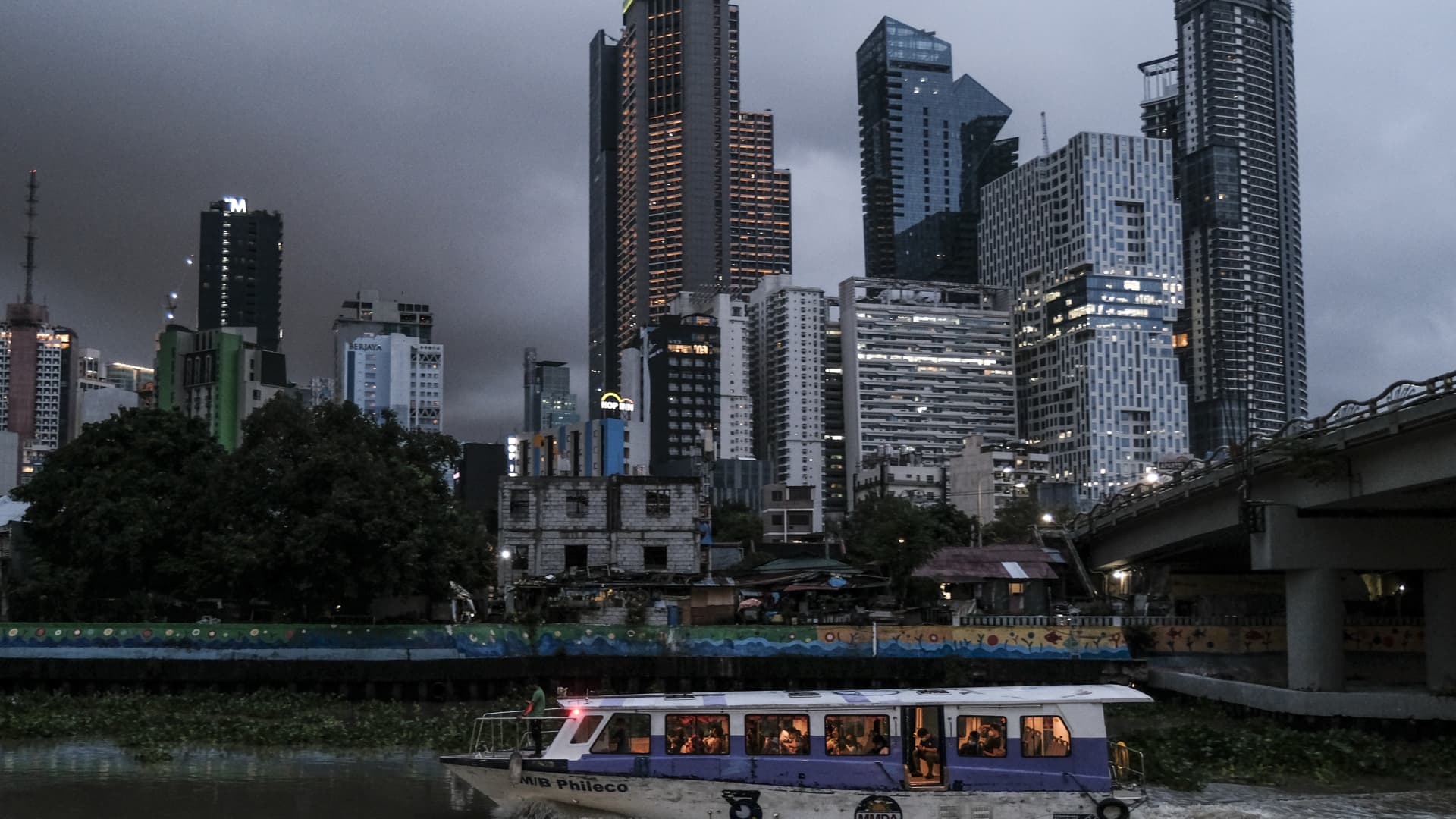
A boat ferries passengers on the Pasig River in Makati City, Metro Manila, the Philippines, on Monday, Aug. 15, 2022.
Veejay Villafranca | Bloomberg | Getty Images
Philippines’ annual inflation data for November soared 8% year-on-year, marking the country’s highest inflation in 14 years as food prices soar, according to data from the Philippines Statistics Authority.
Its surge was driven primarily by costlier food prices.
Recent typhoons have hammered the production of crops like vegetables, rice and fruits, driving food prices higher.
Core inflation, which excludes volatile energy and food prices, rose by 6.5%.
“The government is continuously implementing targeted subsidies and discounts to allay the impact of the higher prices of essential goods, especially for the vulnerable sectors and low-income earners of our society,” in a separate statement, the Philippines’ National Economic and Development Authority (NEDA) Secretary Arsenio M. Balisacan.
He said the Philippines will be ramping up food production in a bid to ease price pressures.
The inflation issue is sticky but “not unique” to the Philippines, JPMorgan’s global strategist Kerry Craig told CNBC. He said the rise in prices is driven by supply side pressures rather than an increase in demand.
“Given the pace of inflation it’s likely that a further rate hike will come later this month,” he added.
ING economist Nicholas Mapa forecasts that the Philippine central bank may raise rates by 50 basis points at its mid-December meeting, bringing the policy rate to 5.5%.
The central bank raised interest rates six times this year, according to data from Refinitiv.
In spite of growth being expected to slow down in 2021, the November inflation data suggests that the central bank still has a number of rate hikes in the pipeline “to help stem any second round effects from higher food prices, rein in demand, and make sure inflation expectations are well anchored,” said Aris Dacanay, ASEAN Economist from HSBC Global Research.
Dacanay also said he expects the BSP to pause its tightening cycle when the policy rate reaches 6.25%.
